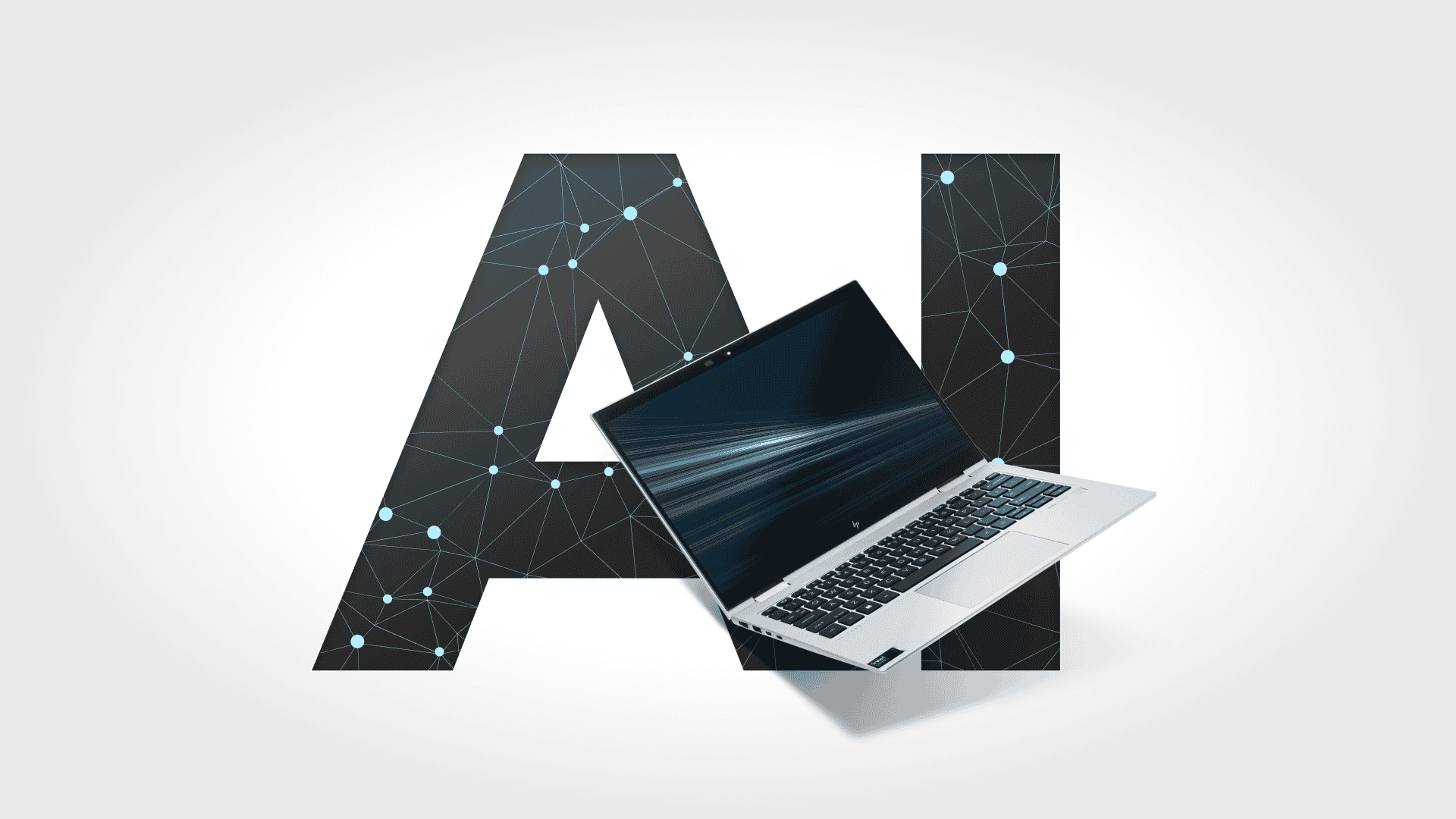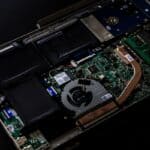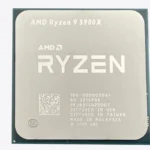AI PCs represent a new wave of computing technology designed to handle artificial intelligence tasks efficiently. These machines come equipped with specialized hardware and software optimized for AI workloads. An AI PC differs from a standard computer in its ability to process complex AI algorithms and machine learning tasks at significantly faster speeds.
The distinction lies in the hardware components and software integration. AI PCs feature processors and accelerators specifically engineered to handle AI computations. These systems often include neural processing units (NPUs) alongside traditional CPUs and GPUs, enabling them to perform AI operations more quickly and efficiently than regular computers.
Software plays a crucial role in defining an AI PC. These machines come pre-loaded with AI-centric applications and frameworks, allowing users to leverage AI capabilities right out of the box. From enhanced voice recognition to real-time video editing with AI-powered effects, AI PCs offer a range of advanced features that set them apart from standard computers.
What Is An Ai PC?

An AI PC, or artificial intelligence PC, is a computer that has built-in AI capabilities to perform tasks like learning, reasoning, and problem-solving. AI PCs are designed to enhance the user experience, performance, efficiency, and security of computing.
Here are some key features of AI PCs:
- Neural processing unit (NPU)A dedicated hardware component that handles the mathematical computations required by machine learning algorithms. The speed of an NPU is measured in trillions of operations per second (TOPS).
- Specialized hardware and softwareAI PCs are equipped with specialized hardware and software to efficiently handle AI and machine learning tasks.
- AI accelerationAI PCs are equipped with AI accelerators that enable them to perform complex computations rapidly and efficiently.
- Self-correctionAI PCs can learn from new data and improve their performance over time.
Some examples of AI PCs include:
- HP Dragonfly G4: This laptop uses AI to automate workflows and simplify complex tasks.
- Intel Core Ultra: This processor family is built on the Intel 4 process and delivers a balance of performance, power efficiency, and AI acceleration.
- Copilot+ PCs: These PCs will have four unique Windows AI features, including image generation in Paint, webcam blurring, and real-time translation.

Pros and Cons of Getting An Ai PC
Here’s a breakdown of the pros and cons to help you decide if an AI PC is right for you:
Pros:
- Enhanced Performance for AI Tasks: AI PCs excel at tasks like image recognition, natural language processing, and running AI-powered applications. This is thanks to their specialized hardware, like Neural Processing Units (NPUs), which are designed specifically for AI workloads.
- Improved Privacy and Security: AI PCs can process data locally, meaning your sensitive information doesn’t need to be sent to the cloud. This reduces the risk of data breaches and gives you more control over your privacy.
- Faster and More Responsive: With dedicated AI hardware, AI PCs can handle complex tasks more efficiently, leading to a smoother and faster user experience, especially in applications that leverage AI.
- New Possibilities: AI PCs open doors to innovative experiences and applications, from enhanced creative tools to personalized learning and more immersive gaming.
Cons:
- Higher Cost: AI PCs are generally more expensive than traditional PCs due to the inclusion of specialized hardware like NPUs.
- Limited Software Support: While the AI PC landscape is evolving, software optimized for NPUs is still relatively limited compared to traditional PC software.
- Potential Complexity: Utilizing the full potential of an AI PC might require some technical knowledge, especially for tasks like training AI models or developing AI applications.
- Not Essential for Everyone: If your primary computing needs involve everyday tasks like browsing, email, and office work, a traditional PC may suffice, and the added cost of an AI PC might not be justified.
Key Takeaways
- AI PCs have specialized hardware for faster AI processing
- These machines come with pre-installed AI software and applications
- AI PCs offer advanced features like improved voice recognition and AI-enhanced video editing
Understanding AI PC Technology
AI PCs offer exciting potential for those who want to explore the world of AI or require enhanced performance for AI-related tasks. However, it’s essential to weigh the pros and cons carefully, considering your needs, budget, and technical expertise before making a decision.
AI PCs incorporate specialized hardware and software to enhance artificial intelligence capabilities. These systems aim to improve performance for AI-related tasks and applications.
The Emergence of AI-Specific Hardware
AI PCs feature dedicated components designed to accelerate AI computations. The Neural Processing Unit (NPU) is a key innovation, optimized for machine learning operations. NPUs work alongside traditional CPUs and GPUs to handle AI workloads more efficiently.
Intel, AMD, and other chip makers are developing AI-enhanced processors. These new CPUs include built-in AI acceleration features. Nvidia’s GPUs with Tensor Cores provide another avenue for boosting AI performance in PCs.
The integration of AI-specific hardware allows for faster processing of complex algorithms. This speed improvement benefits tasks like image recognition, natural language processing, and predictive analytics.
Software and AI Task Optimization
AI PCs leverage specialized software to take full advantage of their hardware capabilities. Operating systems and applications are being optimized to utilize AI acceleration features effectively.
Microsoft’s Copilot is an example of AI-enhanced software designed for these new systems. It assists users with various tasks, from content creation to data analysis.
AI tools and frameworks are being adapted to run more efficiently on AI PCs. This optimization allows for improved performance in areas such as:
- Real-time language translation
- Voice recognition and synthesis
- Automated image and video editing
- Predictive text and writing assistance
The combination of AI-optimized hardware and software enables AI PCs to run complex AI models locally. This local processing can improve privacy and reduce reliance on cloud-based AI services.
AI PC Market and Usage
AI PCs are gaining traction in the consumer electronics market. These devices offer enhanced capabilities for AI-powered tasks and applications. The industry is seeing significant developments from major tech companies and hardware manufacturers.
Consumer Applications of AI PCs
AI PCs provide several benefits for everyday users. Windows Studio Effects enhance video calls with background blur and eye contact correction. Live Captions generate real-time subtitles for any audio content.
Microsoft Copilot serves as an AI assistant, helping with various tasks. It can answer questions, generate text, and assist with creative projects. Photo and video editing tools on AI PCs use AI to improve image quality and streamline workflows.
Auto Super Resolution upscales low-resolution content for better viewing experiences. This feature is particularly useful for gamers and multimedia enthusiasts.
Industry Impact and Key Players
The AI PC market is driving innovation among major tech companies. Intel, AMD, and Qualcomm are developing specialized processors for AI tasks.
Intel’s Core Ultra chips include dedicated AI accelerators. AMD’s Ryzen AI technology enhances performance for AI workloads. Qualcomm’s Snapdragon processors offer efficient AI processing for mobile devices.
Nvidia’s GeForce RTX 4090 GPU accelerates AI tasks for high-end gaming and creative applications. Microsoft is pushing AI integration in Windows, with features like Copilot becoming central to the user experience.
The AI PC market is expected to grow as more applications leverage AI capabilities. This trend is reshaping the PC industry and influencing future hardware and software development.







